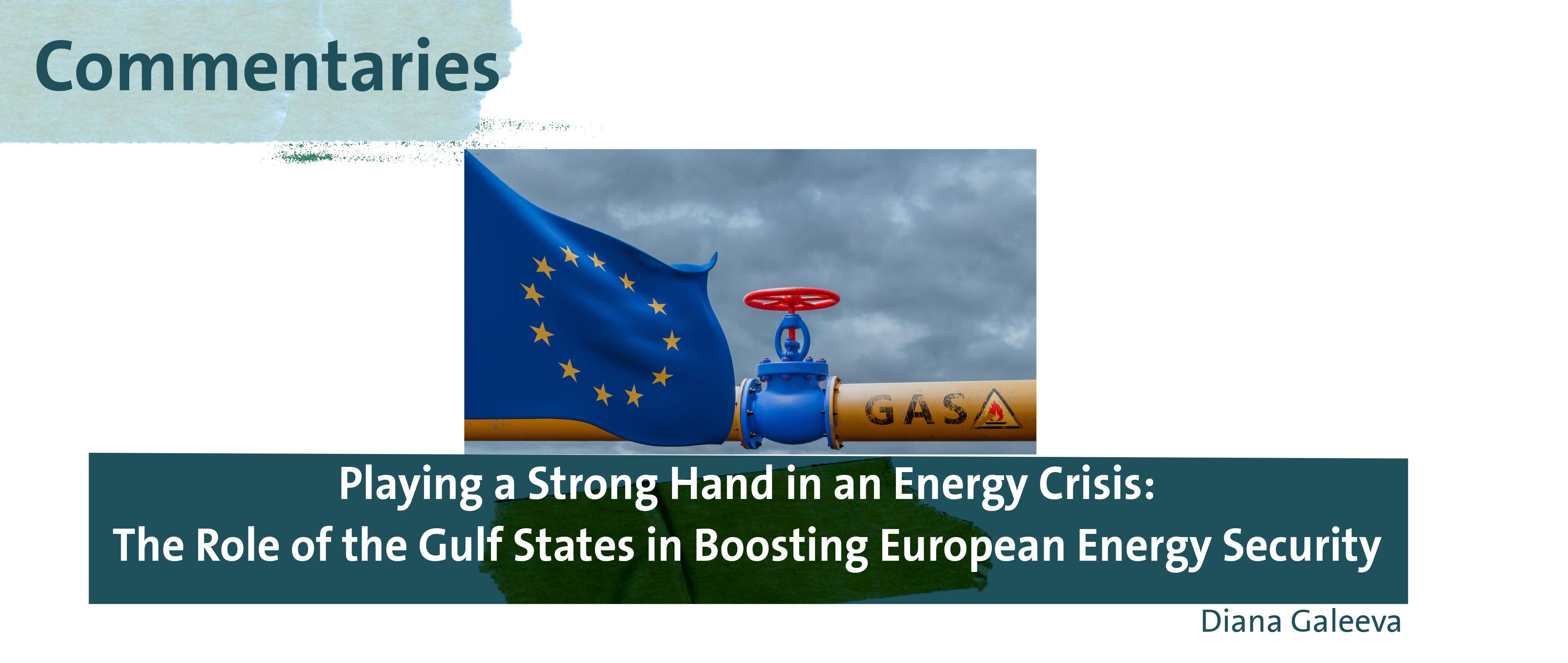Playing a Strong Hand in an Energy Crisis: The Role of the Gulf States in Boosting European Energy Security
In May 2022, the European Union (EU) and the Gulf Cooperation Council (GCC) unveiled a strategic partnership as part of the EU’s Global Gateway strategy. While the EU and the GCC have long-standing ties, the new strategic partnership reflects a desire to address emerging challenges, especially the European energy crisis triggered by Russia-Ukraine conflict. The energy crisis has deepened in recent months, as Russia cut flows in June through the Nord Stream 1 pipeline to 40 percent of capacity and shut the pipeline altogether for ten days of annual maintenance in July. The energy crisis has thrown into stark relief the threat posed to Europe by its dependence on Russian energy and pushed EU states to look further afield as they scramble to secure sufficient supplies of oil and especially gas as winter approaches. The energy-rich GCC states are the natural alternative to Russia in meeting Europe’s immediate energy needs. At the same time, the crisis has highlighted the limits of traditional views that view states through the prism of ‘hard power’, in which the large economies with big populations and geostrategic footprints are seen as having the strong hand, and smaller states as inherently ‘weak’. Traditionally, the major EU states were seen as ‘great powers’ (several were even truly global empires) and even today are influential actors in world politics. By contrast, the GCC states, with small populations and scoring low on most of the traditional indices of ‘hard power’, are proving pivotal. With abundant energy resources, the GCC states are showing a strong hand in helping EU partners through the current energy crisis.

